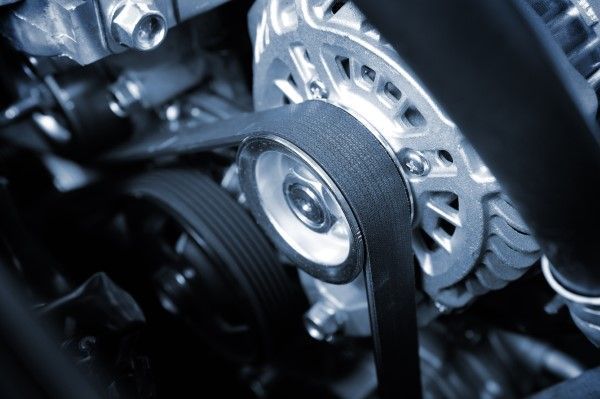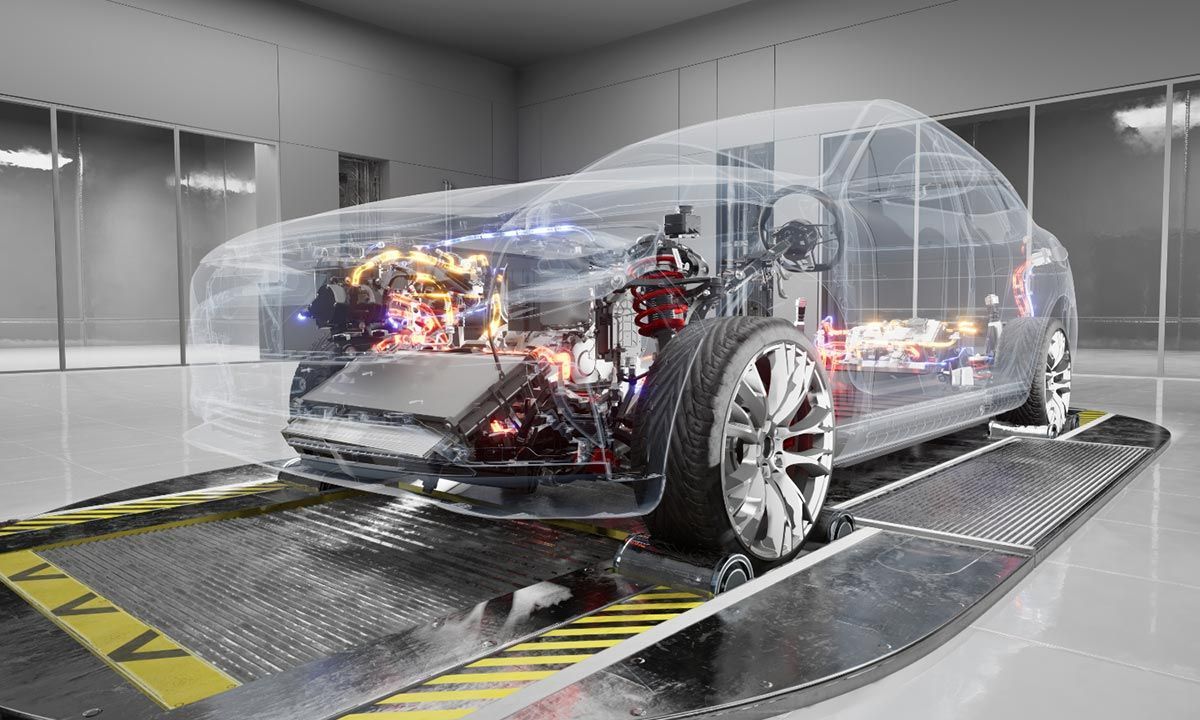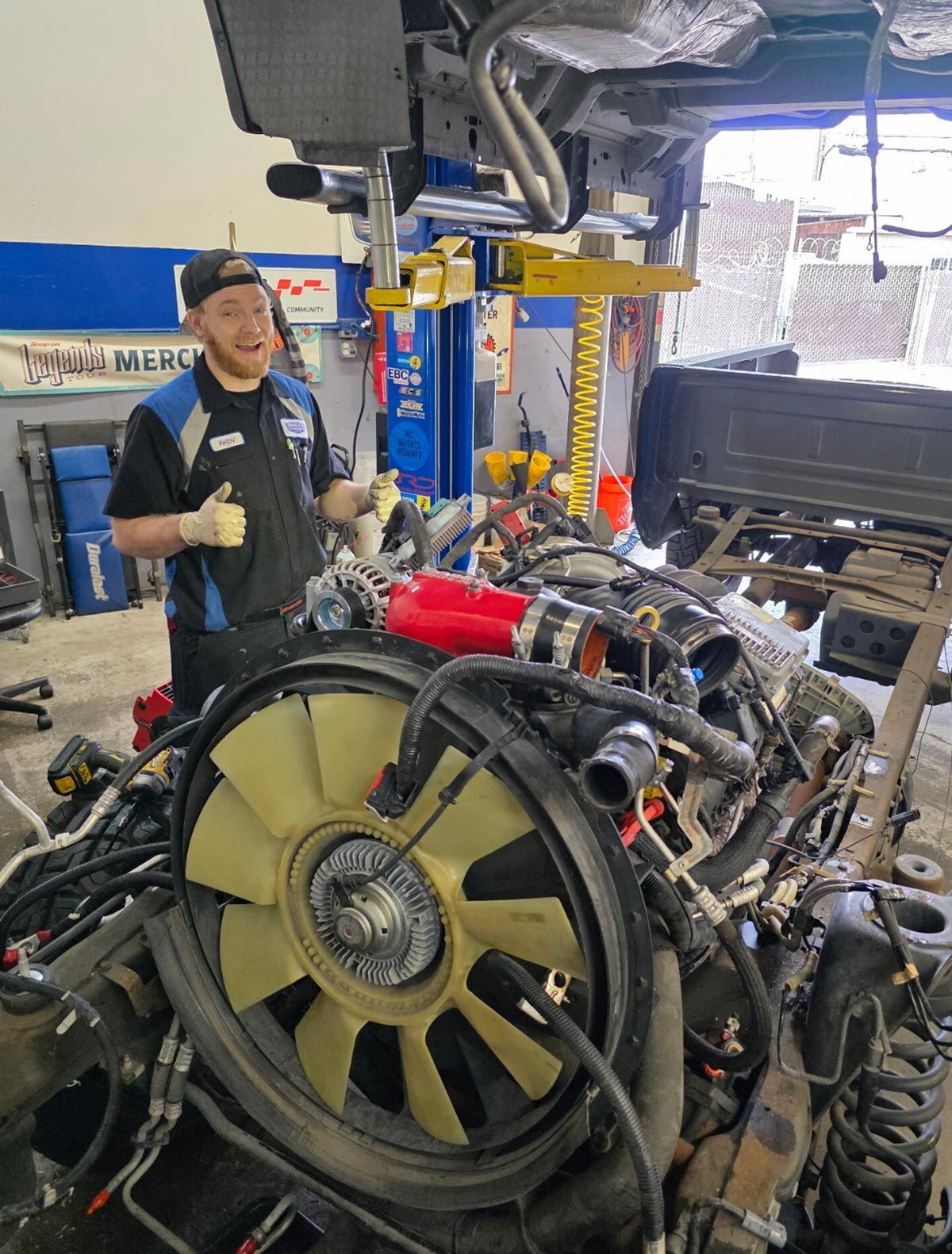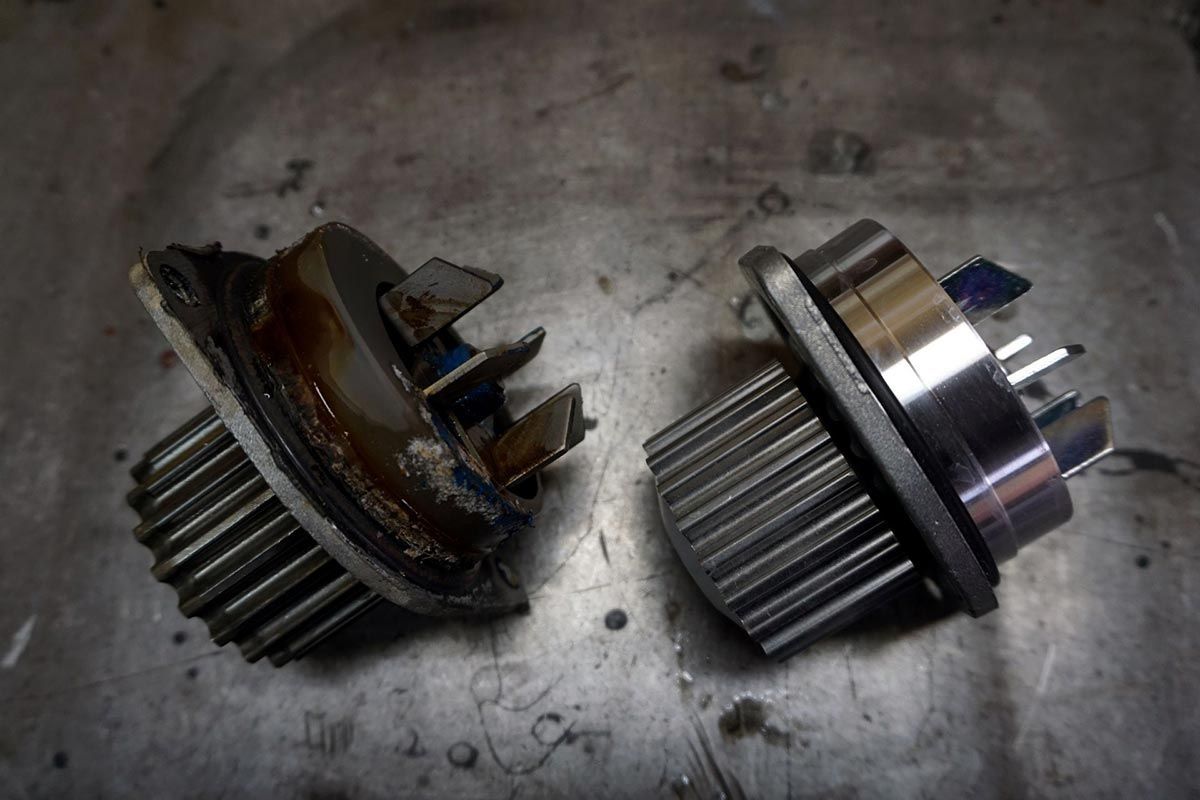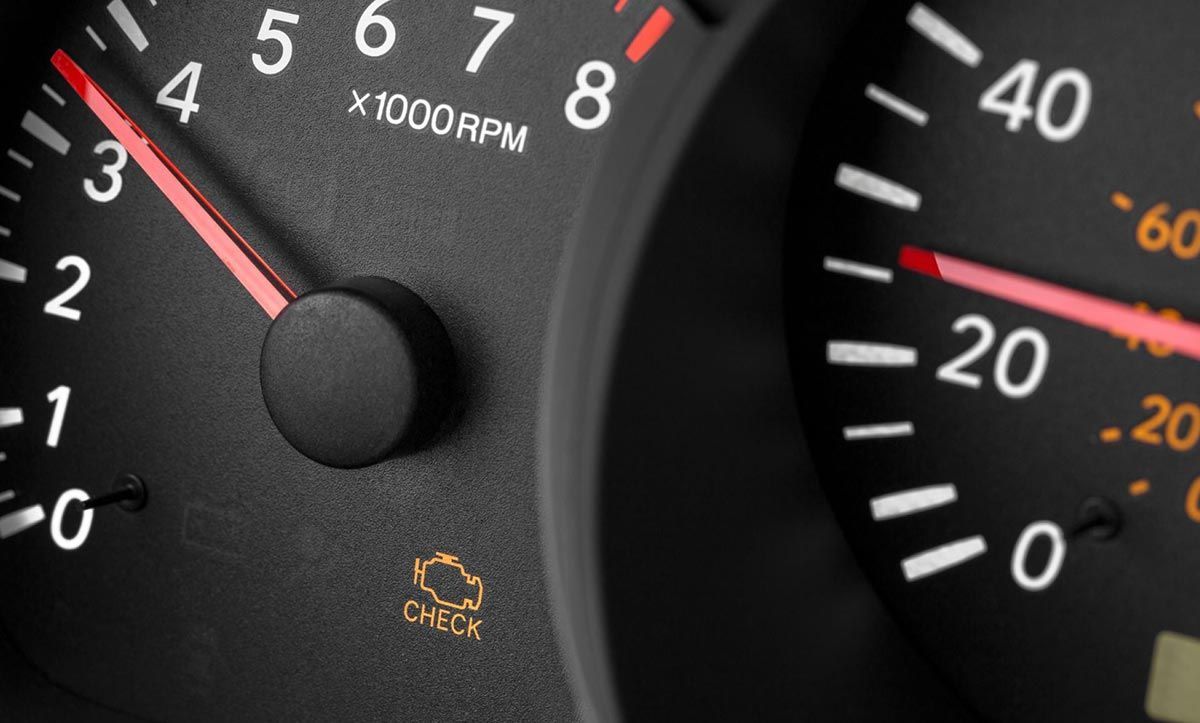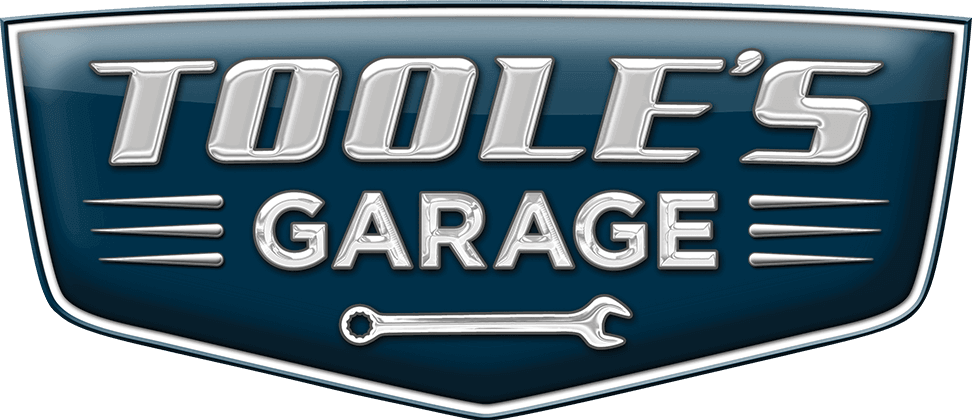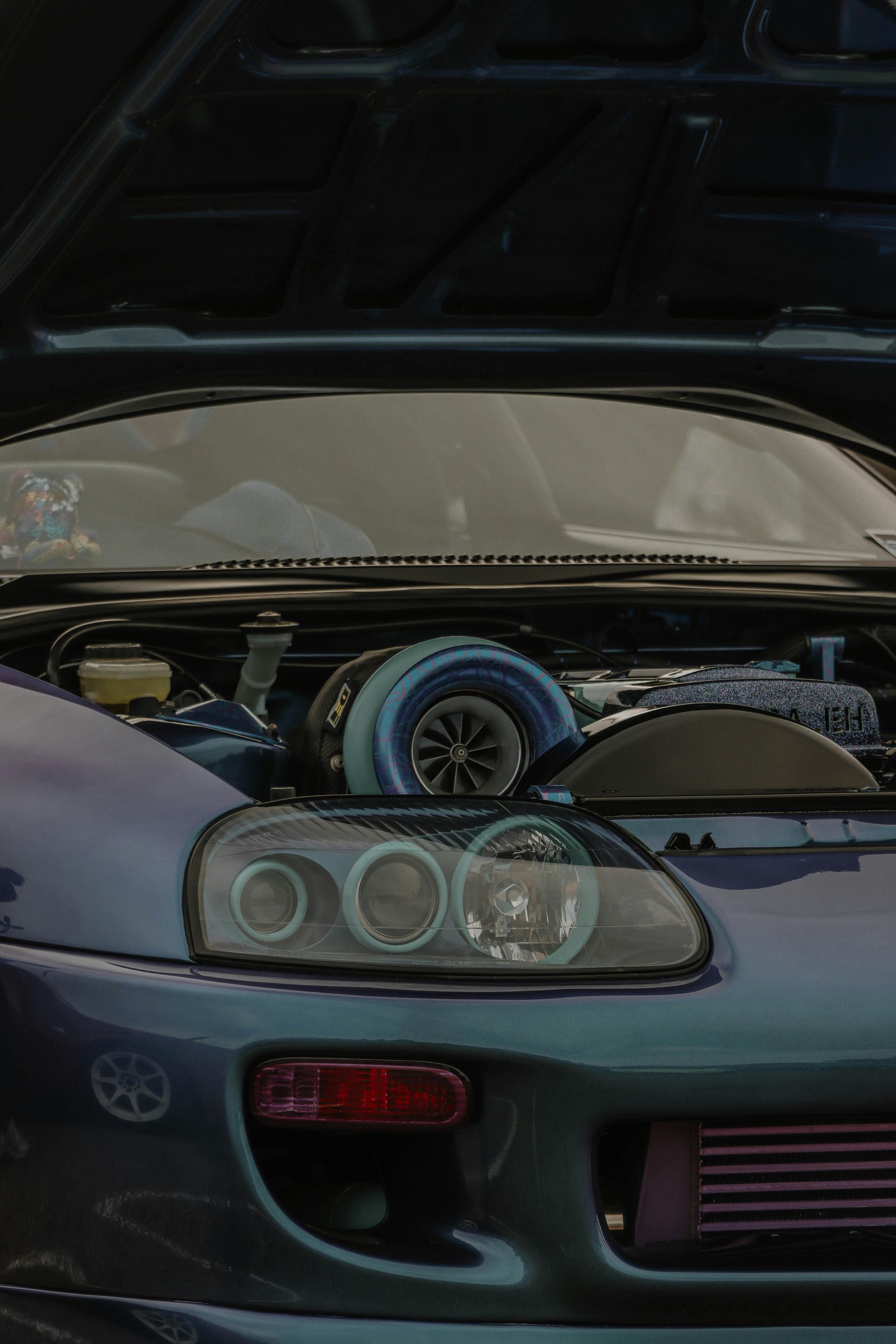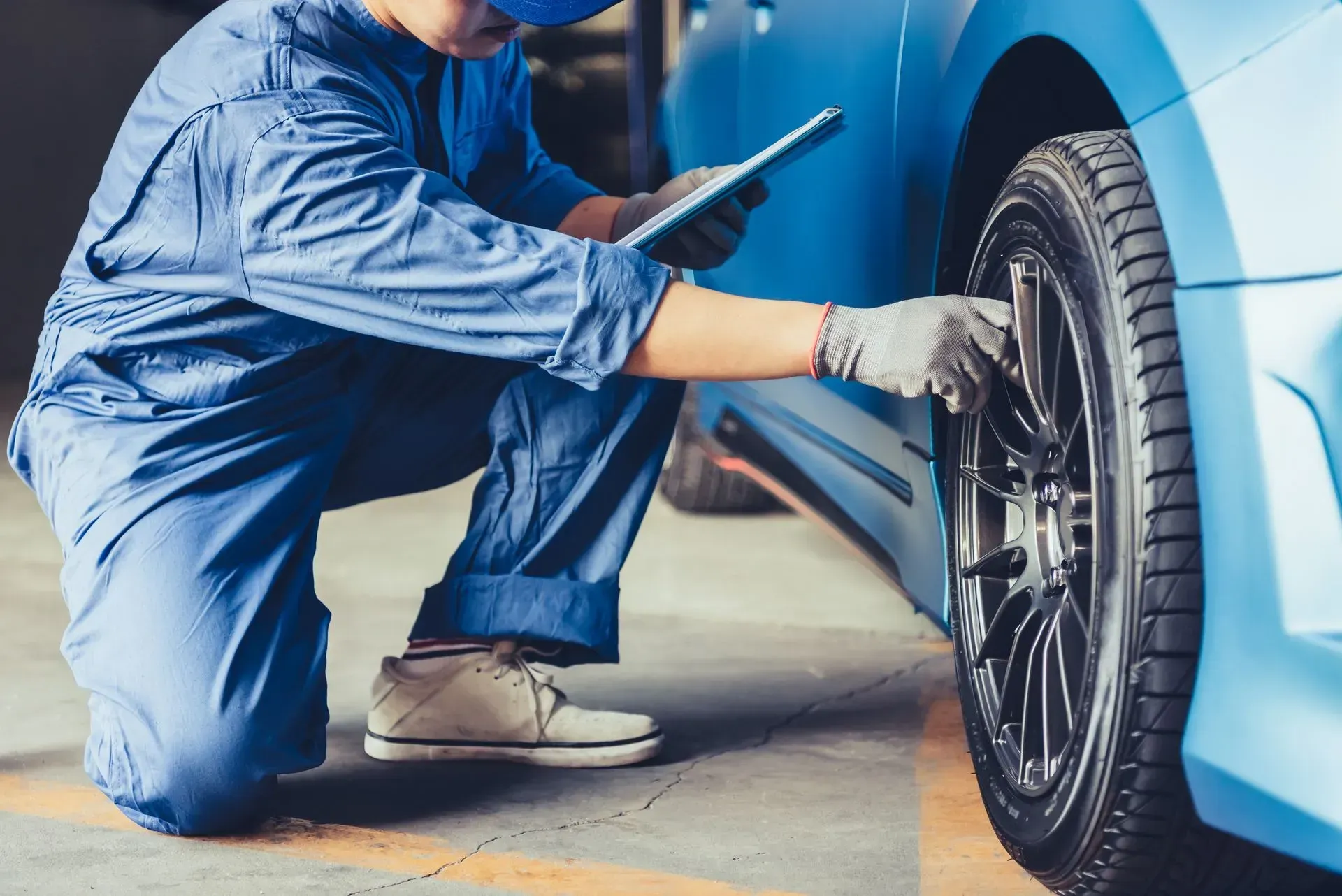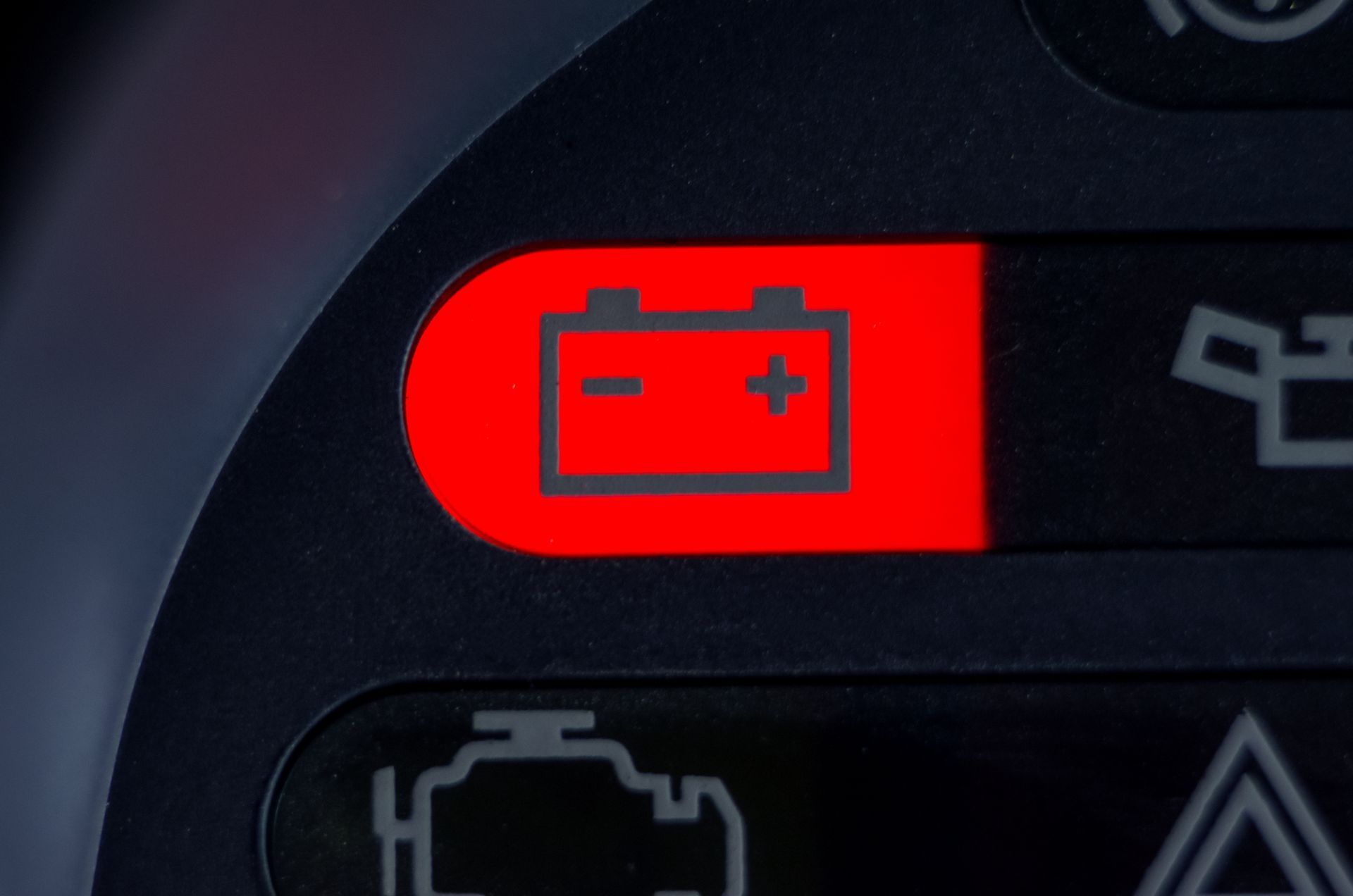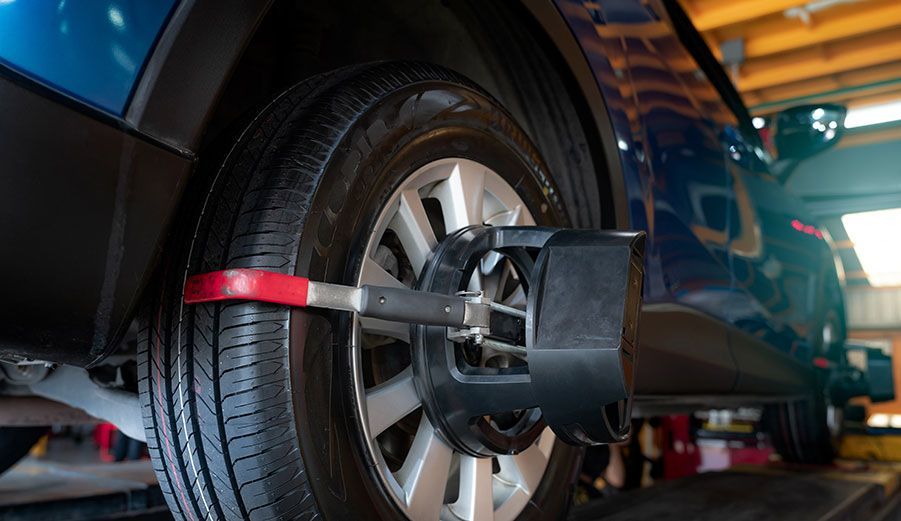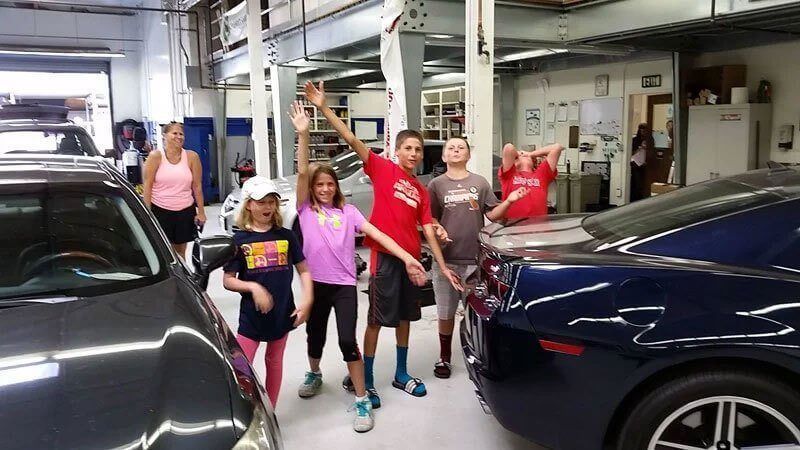October 30, 2025
Seeing that little engine-shaped icon glow on your dashboard can be unsettling. We get it—your car seems fine, maybe even drives “just the same,” but the warning light won’t quit. Here in Stockton, where our vehicles face dust, variable traffic, and stop-and-go commutes, we’ve seen plenty of drivers shrug off the illuminated warning. In this article we’ll demystify the “Check Engine” light (CEL) , explain some of the most common causes, why ignoring it can cost you more than you expect, and why scheduling a diagnostic sooner is the smart move. What Is the “Check Engine” Light Anyway? The Check Engine Light (also called the Malfunction Indicator Lamp, or MIL) is your vehicle’s way of telling you: “Something’s not right.” It doesn’t always indicate an immediate breakdown, but it does mean that a sensor or system has detected an issue. Here’s what you should know: A steady (solid) light usually means a fault has been logged in the engine or emissions system. It might be something minor—or something that could worsen if left unaddressed. A flashing light is more serious—it often indicates a condition that could cause damage (for example, misfires which can damage your catalytic converter). The light itself is not a diagnosis. It simply indicates that the car’s computer has detected a fault. A proper scan and inspection are required to figure out what’s wrong. Common Causes of the Light in Stockton Area Driving Here are several of the frequent culprits we see in the shop—especially given the stop/start traffic on I-5, Highway 99, The Crosstown and local commutes in Stockton: 1. Loose or Faulty Gas Cap Surprisingly, one of the most frequent triggers: if the fuel cap isn’t tightened properly, vapors can escape and trigger the CEL. The fix is simple: loosen then re-tighten until you hear a click. While easy and inexpensive, ignoring it may cause the system to re-trigger repeatedly. 2. Oxygen Sensor or Other Emissions-Related Sensor Issues The oxygen (O₂) sensor monitors how much oxygen is in your exhaust and helps the engine management system optimize fuel/air mix and emissions. A failing O₂ sensor may degrade performance and fuel economy. Other sensors (mass-airflow, catalytic converter efficiency sensors) may also trigger the light when emissions drift out of spec. Because California (and thus the Stockton area) enforces emissions standards, ignoring these warnings may result in more expensive repairs or failing an emissions test. 3. Spark Plugs, Ignition Coils or Misfires Worn spark plugs or bad ignition components can cause engine misfires, which are often logged by the computer and trigger the CEL. Misfires can lead to rough running, loss of power, or even damage to exhaust components. 4. Catalytic Converter Problems If your catalytic converter becomes clogged or overheats (often due to misfire or engine running rich), you may see the CEL. These are expensive components, and the earlier you catch the upstream cause (misfire, sensor fault) the better. 5. Other Engine or Fuel System Issues Vacuum leaks, fuel system faults (bad injectors, poor pressure), and wiring/connector problems all may trigger the light. For example: a sustained lean or rich condition can run your engine inefficiently and trigger the fault code. Why You Shouldn’t Ignore It It might be tempting to think: “My car drives fine, so I’ll wait until it gets worse.” But here are some risks of delaying: Repair costs often increase: What might be a small sensor replacement today can turn into a larger engine or emissions system repair down the road (e.g., damaged catalytic converter) Fuel economy drops: Many of these faults affect fuel/air mixture or engine efficiency. You might be losing money at the pump. Emissions & inspection risk: In California, failing to fix emissions-related problems can cause you to fail inspection or face penalties. Potential for breakdown: A flashing CEL or misfire can lead to unexpected breakdowns, leaving you stranded on Stockton roads or worse. Resale and value: A persistent CEL may reduce your vehicle’s value or raise red flags for buyers. What to Do If Your Light Comes On Don’t panic, especially if it’s a steady light and the car seems to run normally—but don’t ignore it. Check simple things first: Is the gas cap properly secured? Are there any strange running symptoms? Schedule a diagnostic at Toole’s Garage Stockton. We’ll connect a scan-tool, retrieve the fault codes, interpret what they mean in your vehicle’s context, and help you understand what repair or inspection is needed. Act sooner rather than later. Even if the root cause turns out to be minor, catching it early helps prevent escalation. If the light is flashing or you have other symptoms (rough idle, power loss, pulling to one side, excessive exhaust heat/smoke), stop driving aggressively and come in right away. Ask questions: What is the fault code? What did it trigger (sensor, system, engine)? What happens if we wait? How much will it cost? Why Choose Toole’s Garage in Stockton? Here in Stockton, at Toole’s Garage, we handle all makes and models, including hybrids and European vehicles. Our experienced technicians have the tools and training to conduct proper diagnostics, interpret codes, and recommend the right solution — not just a “quick fix.” Whether your CEL is solid or flashing, we’ll give you a clear explanation of the issue, the timeline, and a fair estimate. Bottom Line That little light may seem minor—but it’s your vehicle’s dashboard telling you something is off. Whether it’s as simple as a loose gas cap or a more serious sensor or emission issue, addressing it early is the smart move. Don’t wait until you’re looking at a bigger bill—or a breakdown on a busy Stockton morning. If your check engine light just came on, give us a call at Toole’s Garage Stockton or book an appointment online. We’ll help you get back to driving confidently. Visit Toole’s Garage – Stockton, located at 847 N. El Dorado St., Stockton, CA 95202 , or call (209) 466-5364 to schedule your appointment.
